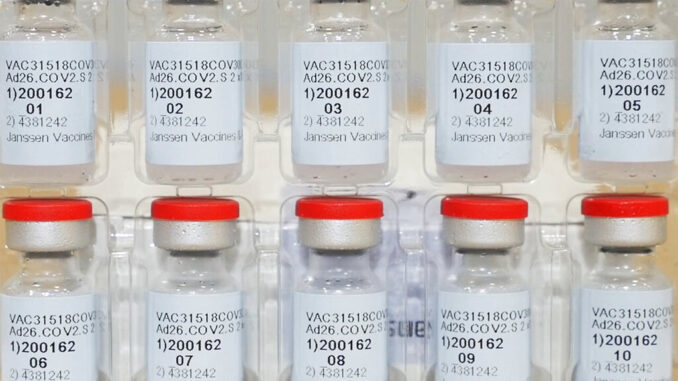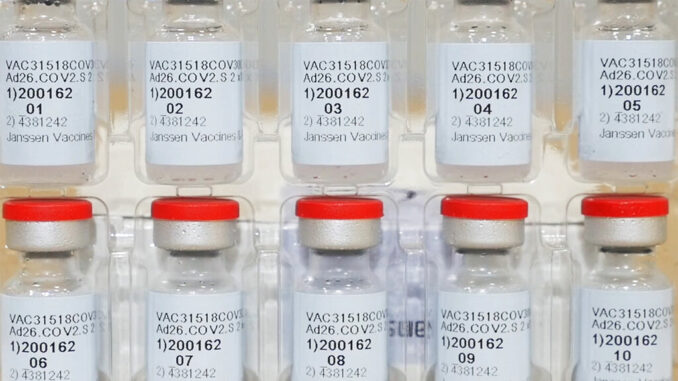

RALEIGH – North Carolina’s allotment of the one-shot Johnson & Johnson one-shot vaccine is expected to arrive in the state on Wednesday. The federal government on Saturday, Feb. 27 authorized the distribution of the J&J vaccine and more than 80,000 doses are expected to arrive in the state this week.
“A third COVID-19 vaccine means North Carolina can get more people vaccinated sooner, which will save lives and slow the spread,” said N.C. Department of Health and Human Services secretary Mandy Cohen.
Like the Pfizer-BioNTech and Moderna vaccines currently in use, the Johnson & Johnson vaccine protects against virus-related hospitalization and death. There are possible temporary reactions, such as a sore arm, fever, headache or feeling tired and achy for a day or two.
NCDHHS says the increased supply will help to ensure distribution and access to COVID-19 vaccines in every community in the state. The Johnson & Johnson COVID-19 vaccine is a single-dose shot and does not require extreme cold storage. As a result, it can be more easily shipped, stored and administered, factors that will help to increase the number of vaccination sites and make them more accessible.
“COVID-19 vaccines and the continued use of the 3 Ws are the most effective ways to help North Carolina stop the spread of COVID-19, get us back in control of our lives and back to the people and places we love,” said Secretary Cohen.
The FDA said J&J’s vaccine was 85% protective against the most severe COVID-19 illness, in a massive study that spanned three continents — protection that remained strong even in countries such as South Africa, where the variants of most concern are spreading.
“This is really good news,” Dr. Francis Collins, director of the National Institutes of Health, told The Associated Press Saturday. “The most important thing we can do right now is to get as many shots in as many arms as we can.”
By the end of March, J&J has said it expects to deliver 20 million doses to the U.S., and 100 million by summer, according to the AP.
An FDA fact sheet for vaccine recipients says there is “a remote chance” that people may experience a severe allergic reaction to the shot, a rare risk seen with the Pfizer and Moderna vaccines. Such reactions are treatable, and vaccine recipients are supposed to be briefly monitored after the injection.
The vaccine has been authorized for emergency use in adults 18 and older for now. But like other manufacturers, J&J is about to study how it works in teens before moving to younger children later in the year, and also plans a study in pregnant women.
The Associated Press contributed to this report.



